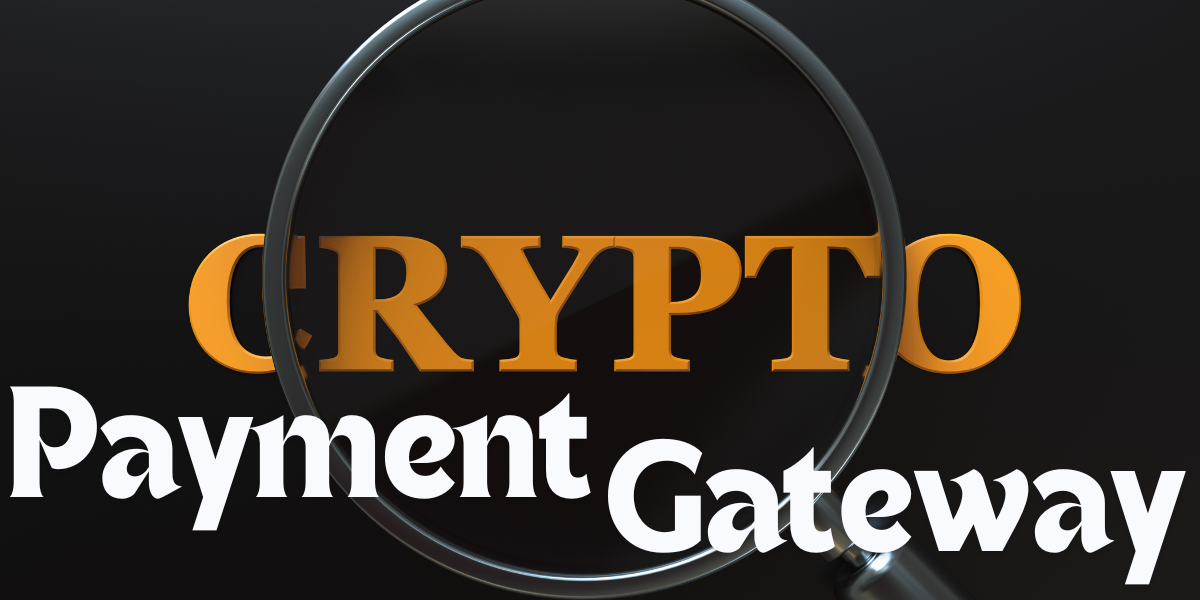There’s no denying the rise of a digital landscape in our world today. Crypto e-commerce payments are more popular than ever, but along with convenience, they bring a slew of security threats you’ll need to protect yourself from. This article investigates security measures in payment gateways and provides all the information you need to keep yourself and your business safe.
What Are Crypto Payment Gateways?
A crypto payment gateway processes transactions made with digital currency. It allows both businesses and individuals to accept crypto coins as payment and receive the equivalent amount of fiat currency in their accounts.

Cryptocurrency merchant services such as these remove uncertainties and confusion surrounding these coins and eliminate the hassle of storage or conversion. It opens the door to small and large businesses allowing more payment options for customers.
How Do Crypto Payment Gateways Operate?
Customers wishing to use digital currency for transactions must first link a crypto wallet to the gateway. This step usually takes place during checkout, whether in a physical location or through an e-commerce platform.
Once a connection is established, the customer completes the purchase using the crypto of their choice based on its current value. The gateway then handles the digital currency transaction processing, automatically converting coins into the payment you indicate.

That equivalent money in fiat currency then appears in a holding space within the gateway that gets deposited into your bank account at regular intervals. Keep in mind that blockchain payment solutions such as these will take a small portion of the total amount as a fee.
The Need For Security
Every crypto payment gateway integration comes with its own risks and will only be as strong as the software you support them with. Leaving these processing platforms as a weak link in your point-of-sale software can allow unscrupulous characters to access your account or your clients’ wallets, both of which affect your ability to run a store. Crypto e-commerce payments are most susceptible to attack since they’re linked to internet use.
Security Measures
Luckily, there are a number of security measures you can put in place to protect your business from cyber theft. Here are some of the common approaches for securing the payment process:
Boost Your Encryption
The transfer process exposes both your sensitive data and your client’s account information to potential threats. Without safeguards in place, there’s no way to shield that information from prying eyes.
End-to-end encryption scrambles data from your customer’s device to your payment processor, hiding passwords and other information you want to keep safe. A number of organizations have encryption standards you can use as a baseline, such as HIPAA, GDPR, and PCI-DSS.
API Security
Application programming interfaces, or APIs, function as the backend framework for web and mobile applications. In effect, they control how different software communicates and interacts with each other within the scope of a larger system.
When an attacker locates a vulnerability in your API setup, they can uncover private data and use it for malicious gains. One of the most common methods for accomplishing this is a Distributed Denial of Service (DDoS), which overwhelms an API with too many requests.
Implementing the best tools here limits the flow of information so that each piece of software can only access necessary information, minimizing locations where a breach can occur. Secure API setups reinforce potential entry points, further shielding data.
Multi-Factor Authentication
Multi-factor authentication tools require users to input more than just a username and a password to log in. While perhaps once strong enough to keep hackers at bay, it’s now too easy to crack an account’s code and get inside without further measures.
Additional authentication steps range in complexity and security. Options include one-time passwords, security questions, an authenticator app, a form of biometric scan, or a physical device like a badge to complete the process.
Employ Best Practices for Account Management
It’s important to take a proactive approach to your site’s security. Digital currency payment processing is still relatively new, and you don’t want security issues to scare off potential customers.
Therefore, stay apprised of the latest scams and cyberattacks that could threaten your business in the future. Credible news sites, forums, and industry publications are excellent sources for the latest happenings. Read about what other companies are doing for preventative measures and consider adding the same to your system.
Adhere to Compliance Standards
The current global landscape for utilizing a crypto payment gateway varies immensely from region to region. Only anti-money laundering regulations (AML) and know-your-customer (KYC) guidelines are universally standard at this time.
Staying up to date with new compliance standards as they come to pass enhances your system’s strength and increases the likelihood of repelling suspicious activity. Furthermore, keeping all your software up to date can introduce important fixes to vulnerabilities and adjustments to block particular types of attacks.
Regular Software Audits
Audits are your internal method for poking holes in your own design. Running these assessments can identify glaring issues with your platform that cybercriminals can use to gain a foothold. It’s also wise to call upon third parties to perform thorough searches for vulnerabilities.
As soon as you locate problems or weak points, implement practices to patch flaws and close up access points. Run these tests on a frequent basis, as the art of hacking constantly evolves to locate new weak points to exploit.
Education and Training
It stands to reason that a majority of cyberattacks stem from simple human error. We fall prey to tricks and scams that steal our passwords or provide other ways for hackers to gain entry.
Use your platform to educate both staff and users on the perils of cyber theft and steps they can take to protect themselves. Instructions can include complex passports or utilizing many of the protocols outlined in this article.
Final Thoughts
A single cyberattack can have a catastrophic impact on your business. The financial loss alone can put a company out of business, but even if you survive, the damage to your credibility may send customers running.
As such, it’s essential to enlist as many safeguards as possible to protect both yourself and the clients you deal with from day to day. Everything from your selection of software to extra tools like encryption and multi-factor authentication both show you’re serious and give shoppers the security they need. Don’t neglect this all-important step when setting up blockchain payment solutions for your enterprise.


 Tags:
Tags:










